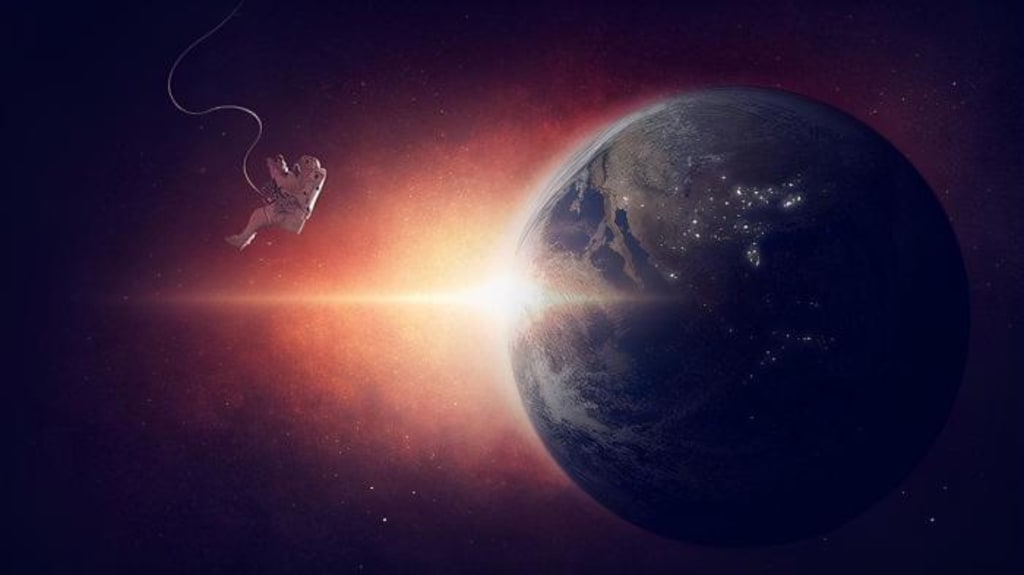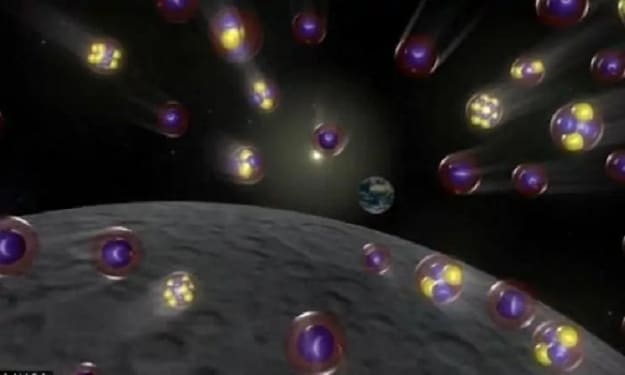Distance from Earth to Space How long does it take for a pilot to enter space?
distance between earth and space

Whether we humans can go to other planets one day, it is very possible.
And now, human beings want to safely enter the universe and explore the solar system, I am afraid it is still out of reach.
To this day, there are only three astronauts who have been farthest from the earth, that is, Americans Jim Lovell, Fred Hayes, and Jack Swigert who were on the Apollo 13 mission.
When they flew behind the Moon, they were 400,171 kilometers from the Earth's surface.
The light takes 1.335 seconds to cover this distance.
There's actually a way, or at least not beyond physics as we know it, that could help us go further into space.
First of all, if it is only to explore the solar system, with the current level of technology, its difficult technology is not as big as imagined.
Even so, however, there are some risks, such as cosmic radiation.
Because the earth has a strong magnetic field, it can help us shield a large part of the cosmic radiation.
So, as astronauts try to get farther from Earth, the more cosmic radiation they get.
How to do it? Is there no way?
In fact, researchers have tested a solution to cosmic radiation.
That's the fungus found in Chernobyl, which can survive radiation, a discovery that could later be used in the development of in vivo shielding systems.
In addition to cosmic radiation, long time journeys are also a challenge.
As long as human beings leave the earth, there are danger zones everywhere, and even if we reach our destination, we may not be able to thrive there.
The closest star to the sun, Centaurus, at the speed of light, takes just over four years to get there.
If we reach the speed of the fastest spacecraft ever, it will take nearly 8,400 years to get there, and that's without slowing down to stop it.
There are suggestions to send robots to explore there.
Tiny ships might get there in decades, while large nuclear-powered ships could make the journey in hundreds of years.
These are very exciting, but they are not suitable for human use. Even if they fit, that's still beyond the lifespan of a human.
The solution to this problem may be generation after generation of spacecraft.
The first generation will leave our planet and their descendants will arrive on this planet.
Obviously, we should be wondering why anyone would start this journey.
But it's also important to discuss the ethical and psychological states that the generations in between, these interplanetary children, may be in.
Will they be interested in continuing toward something they will never see?
Back to the key question, is there any way to improve the speed? without violating physics.
In principle, there is, and that is the rocket of relativity.
You need a rocket whose acceleration is about 9.81 m/s squared.
That's the normal average pull on Earth, so people in the spacecraft will feel like they're just standing on the surface of our planet.
Such acceleration would quickly bring the spacecraft to relativistic speeds, where a very useful phenomenon would occur: time dilation.
At close to the speed of light, the passage of time on the spacecraft will slow down, and the clocks outside will still be ticking.
So you can get to Centaur in 4.3 years, but it feels like 3.6 years on the spacecraft.
If you want to go to Vega (a distance of 27 light-years), it will feel like 6.6 years on board.
The farther you go, the closer you get to the speed of light, and the slower time goes.
At that rate, you could reach the center of the Milky Way in 20 years, or the Andromeda galaxy more than 2 million light-years away in just 28 years.
However, it is not infinite that can go on, the universe is limited.
The universe is expanding, and this expansion is accelerating, with the space between galaxies getting wider and wider over time.
Then the problem comes again! What about the rocket? where?
The root cause of no rockets is fuel.
To sustain such a sustained acceleration requires a lot of fuel. For example, a planet-sized fuel.
Space travel is complex, as far as our current understanding is concerned. We have a lot of challenges to deal with, be it technical, physical, physical, psychological and moral.
Perhaps dealing with these challenges properly could make all the difference.
About the Creator
adalberto alejandrina
scientific exploration






Comments
There are no comments for this story
Be the first to respond and start the conversation.